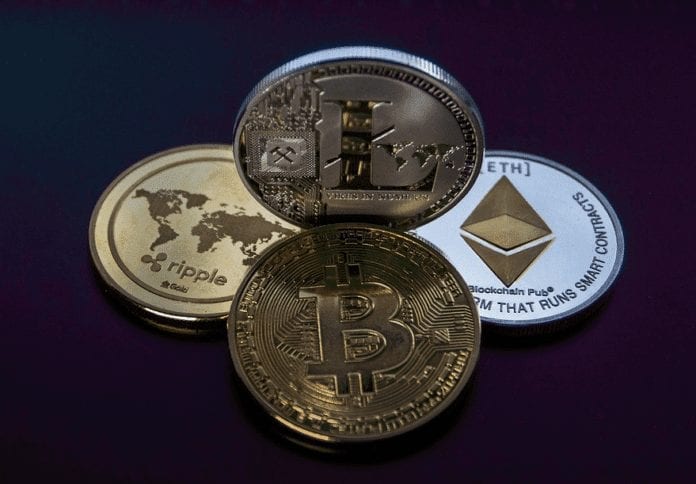These days, blockchain news, including Bitcoin news and Ethereum news, are hot topics, and keeping up with the fluctuations of blockchain stocks like Bitcoin and Ethereum stocks are important for the tech-oriented investor. However, some investors might be wondering to what degree four popular cryptocurrency platforms are decentralized.
What does it mean to say cryptocurrency, like Bitcoin, is “decentralized?”
The term “decentralized” does not appear in the original “white paper” of Bitcoin. (Neither does “blockchain,” but we digress.) Nevertheless, “decentralized” has become synonymous with Bitcoin and its cryptocurrency successors.
For a digital currency to be truly “decentralized,” it must be censorship-resistant and immune from meddling by project leaders. If, for example, the price of a coin is dependent upon its founder staying alive, the it is not decentralized. Also, if the coin’s speed and scalability are on account of centralized nodes, it is not decentralized.
If we use these as our benchmarks, we can quickly conclude that many of the top 20 cryptocurrencies fall short of the required standard. Several cryptocurrencies work toward a “future decentralization” model, in which the developers promise to relinquish control once it is running smoothly; other cryptocurrencies lack the nodes or the hashpower to prevent 51% attacks.
Cryptocurrency leaders Bitcoin, Bitcoin Cash, Ethereum, and Ripple demonstrate varying degrees of decentralization.
We can assess the world’s most popular cryptocurrencies by discussing their node, decentralization, and leadership facts.
First, we should look at Bitcoin. Its network now has almost 12,000 nodes, a figure which has more than doubled in the past year alone. Each node records network activity, which helps verify transactions and make the public ledger as distributed as possible. Full nodes are in operation all over the world. Bitcoin has a hashrate of over 20 exahash per second, making it one of the web’s most decentralized blockchains.
The degree to which Bitcoin mining is controlled by Chinese pools raises concern for those investing in the cryptocurrency.
This mining by Chinese pools can account for up to 70% of the hashing power; however, large new mining farms springing up in North America and Europe are starting up, which promises to alleviate concerns. Also, Bitcoin’s leadership is highly decentralized, and unlikely to ever be at the mercy of a single individual.
Like Bitcoin Core, Bitcoin Cash is highly decentralized due to its large hashrate and the number of full nodes. Bitcoin Cash has only 10% as many nodes as Bitcoin Core, but, this meets the standards required of a decentralized cryptocurrency. Additionally, like Bitcoin Core, Bitcoin Cash has no clear leader or CEO.
Ethereum is highly decentralized, with over 26,000 nodes verifying the cryptocurrency transactions.
A recent report claims that Ethereum is better distributed than Bitcoin, but, that does not mean Ethereum is more decentralized than Bitcoin. One factor we must consider is that Ethereum is in the process of switching to a proof of stake (PoS) model, an algorithm which is less secure than proof of work (PoW).
PoW requires miners to perform actual work to verify each transaction, making it difficult for a bad actor to control the network; it is, in theory, easier for a bad actor to do this with a PoS model. Additionally, Ethereum has centralized leadership, and the platform’s success relies in part on Vitalik Buterin’s involvement with the platform.
The Ripple platform has the potential to be used as a tool of global banks, but, it is definitely not a decentralized cryptocurrency.
Ripple Gateways, which are essentially approved exchanges, even have the power to freeze customer account balances. The associated lack of distributed nodes means that Ripple could be shut down more easily than almost any other cryptocurrency platforms discussed here. This gives us an appreciation of how and why Ripple is decidedly not decentralized.
As regulation becomes more common with cryptocurrency platforms, we have yet to see what effect this will have on decentralization. However, it is clear that cryptocurrency platforms are here to stay–and that questions regarding decentralization will also persist. (To learn more about various forms of cryptocurrency, read Bitcoin, Ethereum, Ripple, and Litecoin: The Future of Currency?)

















